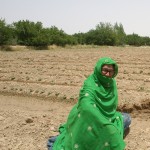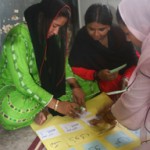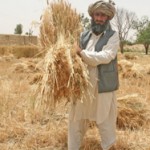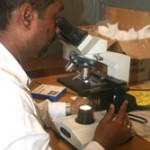
Teerath Mal spent the first five years of his education in anything but a traditional classroom. He went to school in Thana Bola Khan village in Sindh province, southeastern Pakistan, where classes were held outside under a tree.

Bakhtawar, a grandmother who lives with her extended family in Murtad Kilan village in Pakistan’s Balochistan province, recently planted her very first vegetable garden next to her home. She planted tomatoes, eggplants, gourds, and okra — summer vegetables used in daily cooking but usually available only at markets.

Sughra Hanif, a woman from a neighborhood called Lyari in Karachi, Pakistan, used to bring along one of her 10 children whenever she went out so they could read her bus schedules and numbers. “Otherwise I couldn’t leave the house,” she said. Hanif, who had never gone to school, moved to Karachi from a village in 1988.

When the wheat began to grow, Abdul Khaliq wasn’t sure he had made the right decision by switching to this new variety of wheat. The young wheat crop looked shorter, and Khaliq worried it would not produce as much grain. He soon saw his fears were unfounded.

Sabiha thought she had typhoid or malaria when she went to a Karachi hospital two years ago with a hacking cough, fever, and loss of appetite. When doctors showed her an x-ray of her ravaged lungs, the 16-year-old panicked. She had tuberculosis. Relatives taunted her family, saying they would never be rid of the disease.








Comment
Make a general inquiry or suggest an improvement.